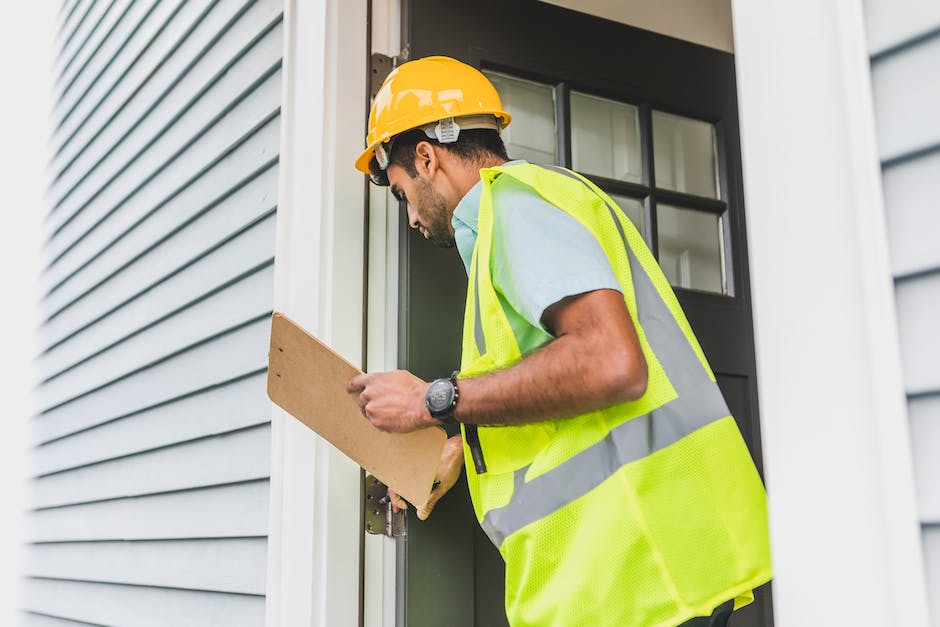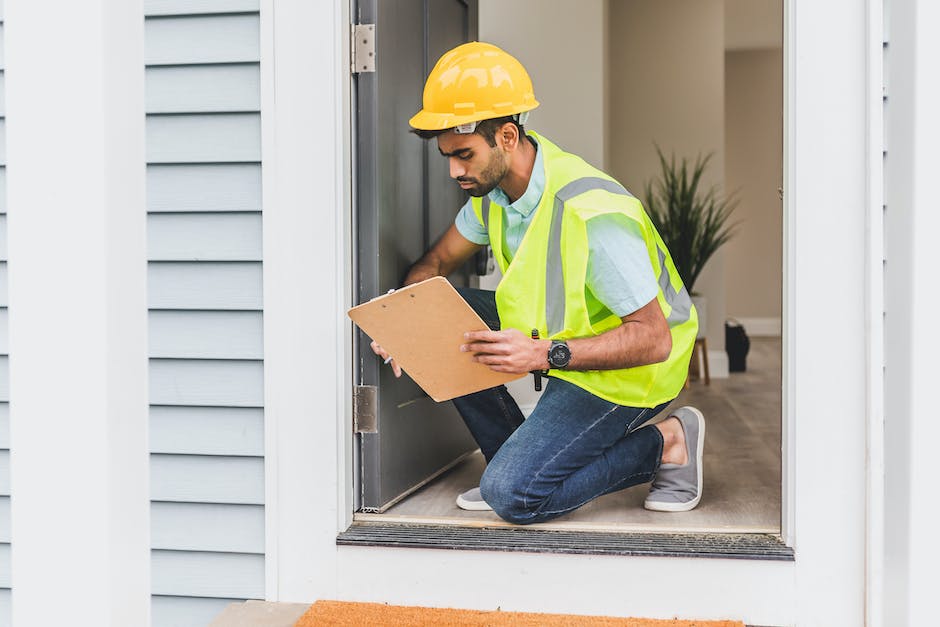In the State of Maryland, there are stringent regulations in place to protect residents from the severe health hazards posed by lead-based paint in rental homes. Thus, hiring lead inspectors for rental properties is no longer seen as an option but a necessity for property owners. This article aims to assist current and prospective landlords in Maryland in understanding the importance of lead inspections, exploring the qualifications and certifications of lead inspectors, understanding the process and costs associated with hiring these professionals, and introducing some of the leading lead inspection companies in the state.
Importance of Lead Inspectors in Rental Properties
The Significance of Lead Inspectors for Maryland Rental Properties
Hiring lead inspectors for rental properties in Maryland is of paramount importance when ensuring the safety and health of residents. This need is underscored by the fact that lead-based paints were widely used in homes built before 1978, posing significant risks due to the toxic nature of lead. Chronic exposure to lead can cause an array of health issues, including developmental problems in children and neurological conditions in adults.
The Role of Lead Inspectors
Professional lead inspectors are trained to detect the presence of lead in rental properties. The process typically includes both surface testing for lead-based paints and soil testing for lead contamination. Inspectors hold the necessary credentials and use specialized equipment to identify sources of lead. The results of these inspections provide landlords with the necessary information to implement proper lead abatement methods.
The Risks Associated with Lead Exposure
Exposure to lead dust may lead to serious health issues. In children, even low levels of lead can result in behavioral problems, lower IQ and hyperactivity, slowed growth, hearing problems, and anemia. In rare cases, ingestion of lead can cause seizures, coma, or even death. Adults exposed to lead can suffer from cardiovascular issues, decreased kidney function, and reproductive problems.
Landlords’ Responsibilities
In Maryland, owners and landlords of rental properties are legally obligated to provide safe and healthy living environments. A key part of this responsibility is ensuring their properties are free from lead hazards. This includes conducting a lead paint risk reduction treatment, performed by accredited and certified individuals or firms, when a tenant moves out or whenever chipping, peeling, or flaking paint is noted during occupancy.
Furthermore, landlords are required to register their properties with the Maryland Department of the Environment and renew this registration annually. Landlords must also distribute specific educational materials to tenants, including the EPA-approved pamphlet, “Protect Your Family from Lead in Your Home”.
Understanding the Importance of Lead Inspectors for Maryland Rental Properties
For Maryland rental property owners, ensuring compliance with lead regulations is of utmost importance. Failure to adhere to the guidelines might result in substantial fines or potential legal actions from aggrieved tenants, emphasizing the immense need for routine inspections conducted by specialized lead inspectors.

Qualifications and Certifications of Lead Inspectors
Recognizing Essential Qualifications and Certifications for Maryland’s Lead Inspectors
When it comes to hiring lead inspectors for Maryland rental properties, it is crucial to comprehend their required qualifications and certifications. At the very least, these professionals should have a high school diploma or GED. Nevertheless, to augment their credentials, many lead inspectors in Maryland continue their education in relevant disciplines like environmental science or public health.
Certification Courses and Examinations
In addition to base level education, lead inspectors should successfully complete mandatory certification courses. These include Lead Abatement Worker and Supervisor, Lead Inspector Technician and Lead Risk Assessor, among others. Importantly, these courses are approved by the Maryland Department of the Environment (MDE).
After completing the approved courses, aspiring lead inspectors must pass a state examination administered by the MDE or an equivalent body. This exam aims to test their understanding of lead-based paint hazards and necessary procedures to identify and mitigate these hazards. Achieving a passing score on this exam is a necessary step to becoming a duly certified lead inspector in Maryland.
Professional Experience in the Field
Practical experience often complements theoretical knowledge. Prospective lead inspectors should preferably have some level of experience in the field. This could involve working under a seasoned lead inspector or participating in supervised on-site training. The primary underlying aim of this experience is to expose them to real-life situations and enhance their problem-solving abilities.
Continuing Education and Updates on Legislation
On becoming a certified lead inspector, continuous education is crucial to stay updated on changing regulations and new research findings. Inspectors should display a commitment to learning and keeping their knowledge base up-to-date. Additionally, they must be conversant with the stipulations of the Lead Poisoning Prevention Program established by MDE and the specific rules guiding rental properties in Maryland.
Communication Skills and Technological Proficiency
When hiring a lead inspector for Maryland rental properties, it is essential to ensure the candidate also possesses strong communication skills. They’ll be required to explain complex terms, processes, or risks to tenants and property owners, sometimes under stressful conditions. This makes excellent communication a crucial part of their professional toolkit.
Moreover, it’s desirable for lead inspectors to be adept with technology and comfortable using software specific to the field, such as data logging software or lead-based paint inspection software. Familiarity with these tools will improve the efficiency of their work.
Overview
To effectively manage lead-related risks in Maryland rental properties, it’s important to employ certified and well-equipped lead inspection professionals. The process of hiring these specialists should delve into considerations such as their educational background, accreditation status, professional experience, and commitment to ongoing professional development. Key qualities to look for also include strong problem-solving abilities and excellent communication skills.

The Hiring Process for Lead Inspectors
Finding Potential Lead Inspector Candidates
Launching your search for a lead inspector for rental properties in Maryland begins with identifying potential candidates. This could involve exploring employment agencies, browsing online job platforms, placing ads in local newspapers, or leveraging professional networks. It’s crucial to thoroughly assess each candidate’s skills and experience during the screening phase to find the most suitable inspector.
Conducting Interviews
After shortlisting potential candidates, arrange for interviews. This is your opportunity to delve into their skills, knowledge, and experience. Ask probing questions about previous lead inspections they have carried out, their understanding of Maryland’s specific lead regulations, and potential challenges they might face. Remember, the quality of your lead inspector can significantly impact the safety of your rental property.
Assessing Credentials
When looking to hire a lead inspector in Maryland, it’s crucial to evaluate their credentials. They should be certified under the Maryland Department of the Environment (MDE), which is a legal requirement for all individuals engaged as lead inspectors in Maryland. This certification ensures that they have undergone adequate training and are well-versed with the necessary procedures and standards of lead testing and inspection.
Insurance and Registration
Beyond their professional capabilities, proper insurance coverage and completed registration with local authorities are also essential. Make sure the prospective lead inspector has liability insurance to cover any damages that may occur during the inspection. Additionally, they should be registered with the relevant local bodies to ensure they are operating within the law — a crucial detail you should definitely confirm before finalizing any hiring decisions.
Finalizing Contracts
Once you have identified your preferred lead inspector, the final step involves drawing up and finalizing contracts. This crucial document should spell out the roles and obligations of both parties, clearly outlining terms such as the scope of the inspection, timeline, and payment details. Seek legal advice if necessary to ensure all aspects of the engagement are well-captured in the contract. Remember, a well-drafted contract will help safeguard your interests and ensure the smooth execution of the lead inspection.
Continuous Involvement and Monitoring
After the hiring process, involvement doesn’t end there. Setup regular meetings to update you about the inspection progress. Remember that lead inspections are significant for the safety and health of your present and future tenants. It is imperative to stay educated on the progress and results. Regular monitoring enables you to address any concerns promptly, ensuring that the property remains compliant to the State’s lead poisoning prevention laws and guidelines.
By meticulously adhering to a designated process, you can confidently hire a lead inspector capable of meeting your Maryland rental property’s lead inspection requirements. Employing skilled and diligent professionals makes it easier to comply with the rigorous lead laws of Maryland.

Cost of Hiring Lead Inspectors
Understanding Costs
Several factors influence the cost of employing a lead inspector for Maryland rentals. While average fees range from $200 to $400 per unit for a professional lead paint inspection, the final cost can be dictated by factors such as property size, number of units requiring inspection, and the complexity entailed in the inspection process itself.
Size of the Property
The size of the rental property significantly impacts the total cost of hiring a lead inspector. A small, single-unit property may only require a couple of hours of work, while larger properties with multiple units or extensive square footage will take more time – and subsequently, more money – to inspect properly.
Number of Units Involved
The more units a property has, the more costly the inspection will be. This is because each unit in a property must be evaluated separately, as the health risk may differ from one apartment to the next based on various factors. This includes the age of the unit, renovations, and the maintenance routine.
Complexity of Process
The amount of underlying complexity involved in the inspection process may also lead to a greater cost. If the property has been extensively remodeled or includes many layers of paint, the lead inspection may require more effort and advanced tools to analyze the presence of lead-based paint accurately.
Other Potential Costs
Apart from the average lead inspector cost, you may also face additional costs for various associated services. This may include lab tests for collected samples which usually range in price from $25 to $75 per sample. Secondly, if lead is detected, a risk assessment will also add to your overall cost. A lead risk assessment ranges between $200 and $400, depending on the property size.
Budgeting for Inspection
It’s vital to account for this in your budget while owning or managing a rental property. Remember, the cost of inspection can be recouped over time due to the increased value a lead-free certification can bring to your property. This can make the property more appealing to renters who are concerned about lead exposure, especially those with children or who are planning to start a family.
Finding an Inspector
When selecting your lead inspector, do not rush into a decision based on the lowest quote. Check for their certifications, the methods they use for testing, and seek out reviews from previous clients. It is wise to remember that the best value isn’t always the lowest price – it’s the balance between the cost and the quality of the service provided.
Government Assistance
Property owners should also be aware that the State of Maryland sometimes offers financial assistance for lead paint inspection, maintenance, and remediation through the Maryland Department of Housing and Community Development. This might reduce the financial burden associated with ensuring your rental property is lead-safe.
Fulfilling lead safety standards isn’t just a legal necessity, but also demonstrates a commitment to offer a secure and healthy place to live for your tenants.

Local Lead Inspection Companies in Maryland
Exploring Lead Inspection Services in Maryland
In Maryland, you will find a plethora of lead inspection companies providing solutions specifically designed for rental property owners. Firms such as RPT Environmental, All Green Environmental Services, and Chesapeake Environmental Lab hold a prominent place in the industry.
RPT Environmental
RPT Environmental, located in Elkridge, Maryland, specializes in identifying lead risks in older homes. The company offers lead paint surveys to landlords wanting to lease their property. The aim is to maintain the safety and health of tenants and to comply with Maryland risk reduction standards. Plus, yearly inspections are conducted by RPT to ensure the property retains a lead-free certification.
All Green Environmental Services
All Green Environmental Services, headquartered in Lanham, Maryland, provides lead-based paint inspection, risk assessment, and clearance testing. They utilize state-of-the-art XRF technology to provide quick and accurate results. All Green’s lead inspectors are all EPA and Maryland Department of Environment approved and certified.
Chesapeake Environmental Lab
Based in Whiteford, Maryland, Chesapeake Environmental Lab features comprehensive inspection services with a focus on residential properties. It provides a detailed report highlighting areas with lead hazards and recommendations on best practices to manage the situation. Chesapeake Environmental offers a quick turn-around time and prides itself on customer satisfaction ratings.
Comparing Costs
Rates among these service providers vary, largely dependent on the size and condition of the property. On average, lead inspection in Maryland can cost anywhere from $250 to $800. RPT Environmental, All Green Environmental Services, and Chesapeake Environmental Lab are all competitively priced, presenting a range of rates to fit different property types and owner’s budgets.
Reputation and Reviews
The reputation of each company plays a significant role in the decision-making process for property owners. RPT Environmental has a stellar reputation for thorough inspections and detailed reports. All Green Environmental Services is particularly praised for its use of advanced technology and speedy service. Meanwhile, Chesapeake Environmental Lab boasts high customer reviews, primarily due to its quick response times and comprehensive inspections.
Importance of Hiring Lead Inspectors for Maryland Rental Properties
Hiring a lead inspector allows landlords to ensure their property meets Maryland’s Lead Risk Reduction in Housing Act. It aids in avoiding hefty fines and lawsuits associated with lead poisoning. More importantly, it helps to safeguard tenants’ health. Therefore, Maryland rental property owners must prioritize engaging reputable lead inspectors to manage potential lead hazards and comply with state regulations efficiently.

Understanding the intricacies of hiring a lead inspector, their roles, their responsibilities, and the overall costs involved are essential aspects of property management in Maryland. Furthermore, being aware of local lead inspection companies can provide an indispensable resource for property owners to protect the health of their tenants and comply with local regulations. Therefore, in a rental market as competitive and dynamic as Maryland’s, procuring the expertise of a qualified, local lead inspector can differentiate your property as not just a home but a safe, lead-free environment.
